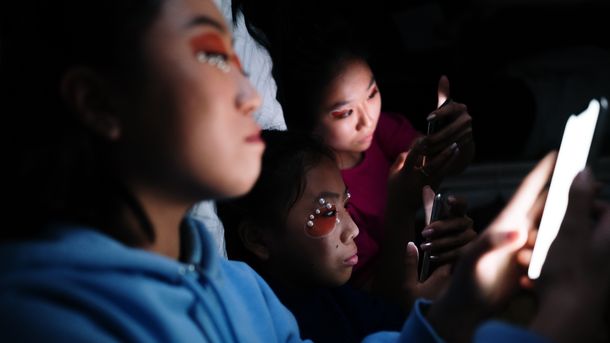With the world still in the grips of the COVID-19 pandemic IΓÇÖve seen more people starting up side-hustles or become solopreneurs. I applaud their bravery and hope that their labors are fruitful. At the same time I have a bone to pick with a small group who portray their services in less than honest ways. I call it ΓÇ£The Mis-Marketing of PossibilitiesΓÇ¥.
IΓÇÖm quite open about my feelings towards marketing. Far too often it preys on our fears and inadequacies to pinch the money from our wallets even when they claim it is for our own benefit. To paraphrase a YouTube video I once saw ΓÇ£Marketing is not there to educate, itΓÇÖs there to take your money.ΓÇ¥

While I cast a wary eye on all forms of marketing I am particularly troubled by those that seemingly offer a guaranteed result without actually saying so. YouΓÇÖve probably heard them yourself but if you are having trouble remembering any right now IΓÇÖve created a few that hopefully capture the spirit of the spiel:
- All it takes is just 3 months to transform finances!
- Unbreakable habits in only 21 days!
- Our weekend bootcamp will change mindsets forever!
Recognize these? Good, letΓÇÖs continue.
A word on ΓÇ£PossibilitiesΓÇ¥
It pains me to think that the word ΓÇ£PossibilitiesΓÇ¥ is next in line to be hijacked by the mass marketers who have already ΓÇ£Managers vs LeadersΓÇ¥, ΓÇ£Problems vs Challenges/OpportunitiesΓÇ¥, ΓÇ£Comfort ZoneΓÇ¥, ΓÇ£Growth MindsetΓÇ¥ and ΓÇ£AuthenticityΓÇ¥. I like the word ΓÇ£PossibilitiesΓÇ¥ probably because internally IΓÇÖve connected it with Improvisation which is something I enjoy.
LetΓÇÖs define ΓÇ£PossibilitiesΓÇ¥ as ΓÇ£realities that could beΓÇ¥. In contrast to realities that will be, possibilities are not guaranteed. In contrast to realities that should be, possibilities are not obliged to come about. They only could be possible and in that space is the power to take volitional action in service of the outcome.

If an outcome were guaranteed, whatΓÇÖs the point of doing anything to either encourage or obstruct it from happening? If an improvised scene was guaranteed to either succeed or fail, why bother taking action at all? Where could learning possibly take place?
If an outcome were obligated, where is the volition and sense of ownership from the participants? If every improvised scene had to be a killer how consistently can you find people to willingly step forward and offer ideas?
Where they ΓÇ£possiblyΓÇ¥ offer you something
Go back to the marketing taglines I included earlier, or examine the ones that youΓÇÖve heard of. Can you see the ΓÇ£possibilityΓÇ¥, the reality that could be, that is being implicitly offered ΓÇö better finances, re-enforced good habits, a powerful mindset ΓÇö eventhough there isnΓÇÖt an explicit promise to you? Here are some other ΓÇ£possibilitiesΓÇ¥ that could happen:
- After paying for the course, you find yourself in debt. ThatΓÇÖs a financial transformation.
- Your bad habits are now harder to break.
- Somehow your negative mindset has been re-enforced.
ΓÇ£PossibilitiesΓÇ¥ do not guarantee anything, not even a beneficial outcome. And these marketers never promised a positive one (well, they never promised you a positive outcome) so if you imagined one for yourself thatΓÇÖs on you.
AinΓÇÖt nobody got time for that
Another implicit promise is in the timeframe: 3 months, 21 days, a weekend. ItΓÇÖs always kept short because it preys on our common feeling that thereΓÇÖs never enough time to go around so faster is better. I have a few problems with this and IΓÇÖll illustrate the first with a common misconception.
Have you heard someone claim that it takes 21 days to build a habit? Sorry to burst your bubble but the science does not support this. The process of building (or breaking) a habit is highly personalized because everyone is different and we live different lives. 21 days isnΓÇÖt even an average, some studies put the number closer to 60 or 70 days.

Can some habits be built quickly? Sure they can (or said another way, ΓÇ£it is possibleΓÇ¥) Have you noticed how you instinctively reach for your phone anytime it makes a sound? Whether itΓÇÖs a call, a text message or a new like on your Instagram post, most of us have a Pavlovian reaction (i.e. ΓÇ£habitΓÇ¥) towards that flat oblong. WhatΓÇÖs more insidious is that you never consciously built that habit, did you?
The second problem I have is that of sustainability. Sure you might be able to make a few changes in your life within the timeframe but how many will stick? If transformation is a completely new way of being and acting can that realistically be accomplished in such a short time? Ask any crash dieter how many times theyΓÇÖve failed and youΓÇÖve got your answer.
Making drastic changes in your life, even if they are for the better, requires a tremendous amount of energy that few have the discipline to continue for more than a short spurt. If youΓÇÖre familiar with the 100m sprint, imagine spending that same burst of energy consistently over 2000m. Many would peter out long before they reach the end.
ΓÇ£TransformationΓÇ¥ is better served through smaller, consistent efforts over longer periods of time. The health-conscious talk about life-style changes and not fad diets. ItΓÇÖs the long-term game that has the stronger calling.
The last issue I have is simply can those making the claim consistently deliver on these “promises”? To some extent we all cherry-pick the glowing reviews on our résumé to make ourselves look better but when push comes to shove you’d best be able to deliver.
Par for the course
The Mis-Marketing of Possibilities is a tactic where the reader/listener constructs for themselves the positive outcome that is implicitly promised to be waiting for them for once they buy said product or service. Sadly this is not too hard to imagine in a world full of sensationalized news and clickbait headlines. Everyone’s gotta get noticed somehow but all I wish for is a little more substance and a lot more integrity. But maybe that╬ô├ç├ûs too much to ask.
